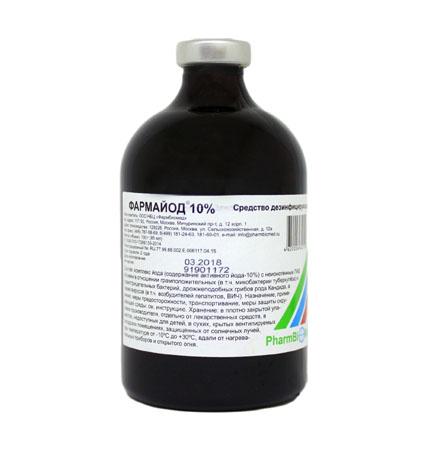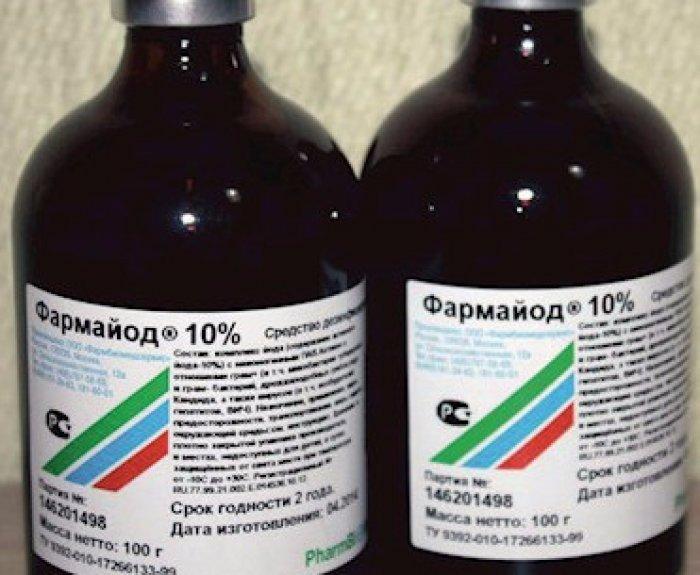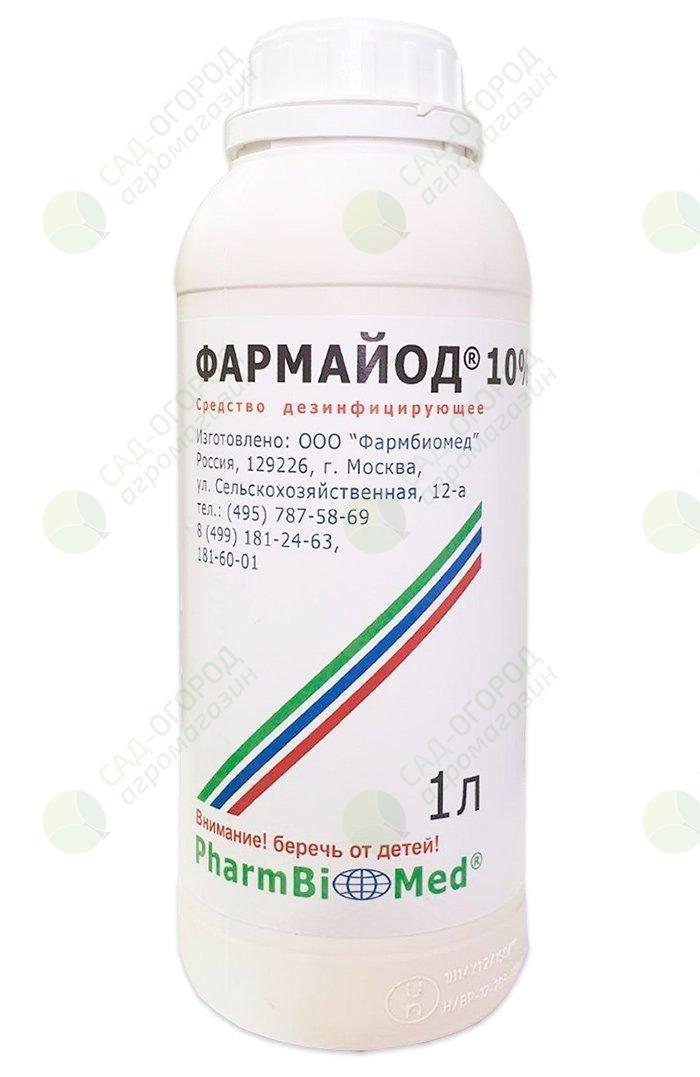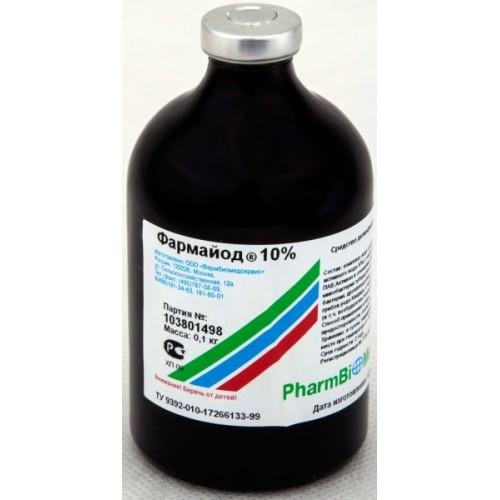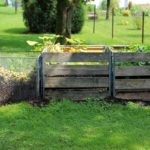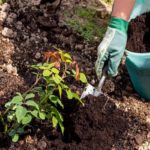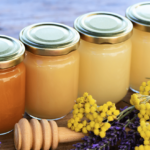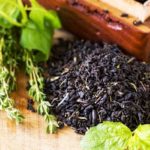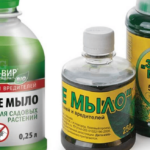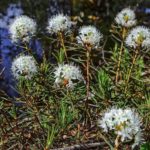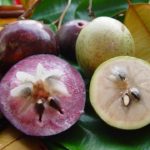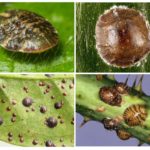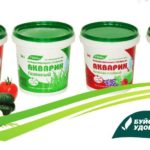Plants, like people, are prone to diseases, so they need regular use of special products - pesticides. This group of drugs includes insecticides, acaricides, fungicides and herbicides, that is, substances that fight insects, pathogens and weeds. One of the promising methods of plant protection is the use of “Farmayod”.
Composition and principle of operation of the product
This is a concentrated disinfectant that works as a fungicide with bactericidal activity. With its help, most harmful microorganisms are eliminated.This means that “Farmayod”, or “Farmoed”, can be widely used for spraying greenhouses, storage facilities, cleaning warehouses and transport, watering soil and spraying plantings.
The product contains a complex of ten percent active iodine and nonionic surfactants. Thanks to this, Farmayod is able to fight a large number of pathogens that disrupt the vital functions of plants. These include the main bacteria, viruses and fungi that infect crops.
Release form and purpose of the drug
“Farmayod” is sold in plastic jars of 100 milliliters, canisters of 850 milliliters and 5 liters, and glass bottles of 85 milliliters.
The product is used for the following purposes:
- Preventive and therapeutic measures against diseases of vegetable crops, shrubs, trees, ornamental plants, bulbous and tuber crops.
- Disinfectant treatment of soils with the destruction of up to 98 percent of pathogenic microorganisms.
- Processing of tools and equipment throughout the growing season and in preparation for winter storage.
- Disinfection of greenhouses, greenhouses, warehouses and storage facilities.
The use of "Farmayod" is accompanied by a beneficial side effect, which consists in reducing the number of insects, mites, nematodes, thrips and other pests.
Method of use of "Farmayod"
An aqueous solution of “Farmayod” for plants is prepared immediately before use, since it cannot be stored for a long time. The dilution standard is about 3-5 grams of concentrate per 10 liters of water. The finished solution is applied in different ways:
- Spraying using a sprayer - manual or automated. Consumption – 1 liter of working composition per 10 square meters of planting.
- Watering the soil at the rate of half a liter per plant (at the root).
- Drip irrigation. At the same time, the instructions require that the system contains no metal parts that corrode upon contact with iodine and products containing it.
Treatment of equipment and premises is carried out with a one- or two-percent solution of “Farmayod”. Equipment and tools are disinfected by wiping with a cloth soaked in a solution of the product, floors and tables are washed with a two percent solution, in the greenhouse the walls, ceilings, floors, glass and equipment are sprayed with the same concentration of the drug. In this case, the room should be tightly closed for 1-2 weeks.
Agricultural crops are processed according to the following scheme:
- Pumpkin - with the development of 2-4 and 5-7 true leaves, with a 0.03% solution, then as needed.
- Solanaceae - treatment with 0.05-1% solution, three times during the growing season.
- Trees, shrubs, berry gardens, vineyards - spraying with a 0.05-1% solution 3-5 times.
- Roses, bulbous and other ornamental plants - treatment of rhizomes and bulbs with a 0.05% solution before planting, watering the soil and spraying on vegetative plantings.
Also, “Farmayod” is used to disinfect instruments used for pruning and grafting.
Security measures
The ten percent stock solution and the working preparation “Farmayoda” with a concentration of 1 percent do not cause damage when they come into contact with the skin, but they stain it, like medical iodine. If it gets on the mucous membranes, the substance causes a burn, and if 3 grams of active iodine is swallowed, it causes death.
"Farmayod" belongs to hazard class 3 and requires the following precautions:
- Wearing safety glasses, a respirator and rubber gloves.
- In case of contact with eyes and mucous membranes, rinse with plenty of water and consult a doctor.
- If you feel unwell after using Farmayod or accidentally ingest it with signs of iodine poisoning, urgent hospitalization is necessary.
After using Farmayod, you must take a shower and change into clean clothes, and dispose of used containers and vessels. Throwing them in the trash is prohibited.
Compatibility with other substances
Iodine is a halogen that aggressively destroys harmful and beneficial microflora indiscriminately. Therefore, it is often combined with substances such as whey or “Phytoplasmin”, and the soil is also populated with beneficial microorganisms after spraying the soil. For these purposes, different versions of “Baikal” are often used.
If you want to combine “Farmayod” with other insecticides and fungicides, you must take into account that this is impossible with drugs with a pronounced alkaline reaction.
The product is quite compatible with other pesticides.
Storage rules
The main solution of the drug can remain active for up to 3 years, subject to the rules of use and storage. In this case, the required amount of product for preparing the working solution can be repeatedly taken from the base container. However, if air is available to the working solution, it can be stored for no more than 24 hours, since iodine and surfactant complexes quickly decompose.
Strangers, children, pets and farm animals should not have access to the storage area of Farmayod.Containers for the product must be labeled and hermetically sealed, since iodine has the ability to evaporate. Such “Farmayod” loses its positive qualities and cannot be used as an effective plant protection product.
Are there any analogues?
You can replace “Farmayod” with drugs of similar action:
- "Betadine."
- "Fitalovin".
- "Fitosporin M".
- "Phytoplasmin".
Proper use of the drug "Farmayod" can have a positive effect on the safety of the crop, its full development and long-term storage.

